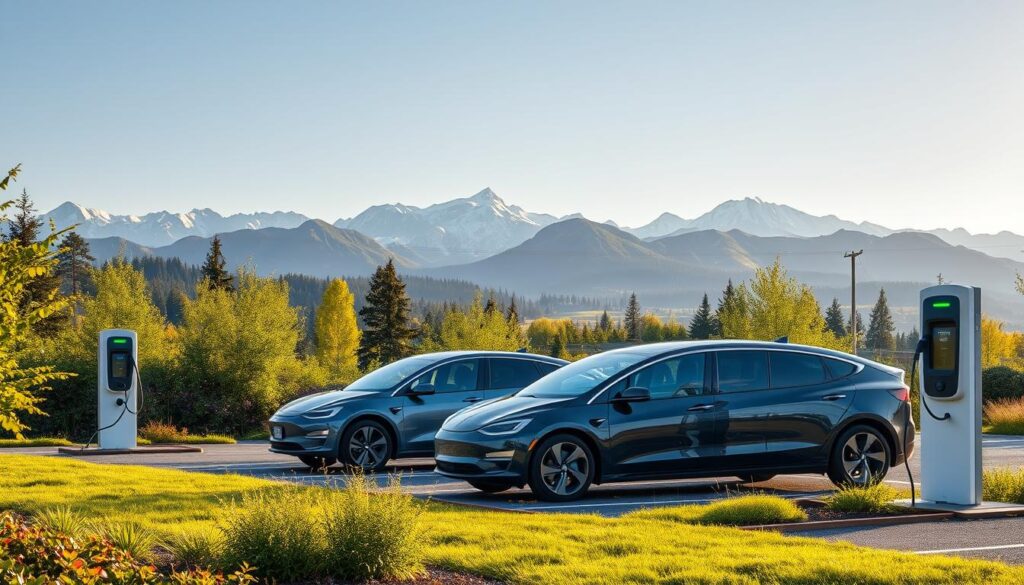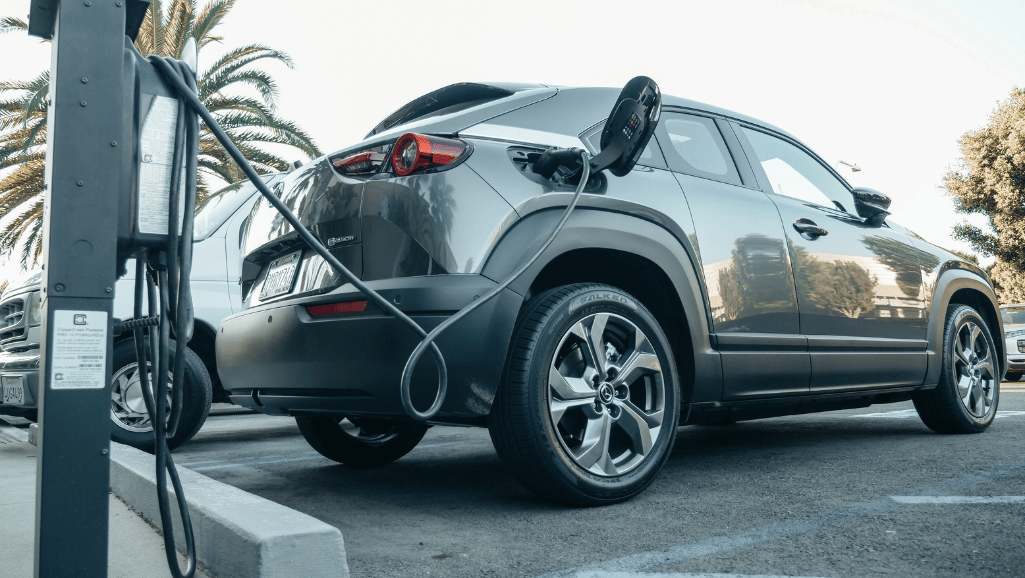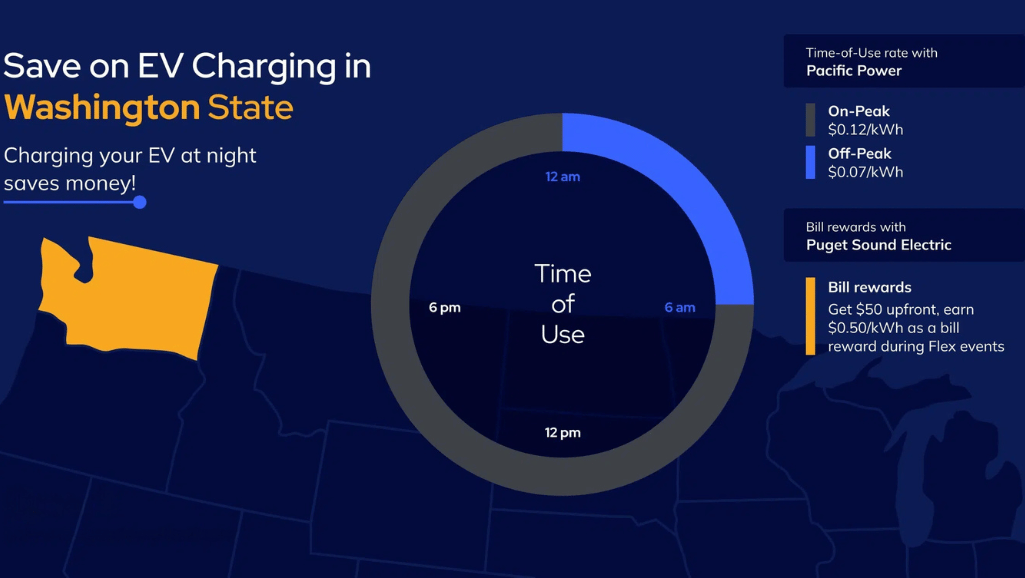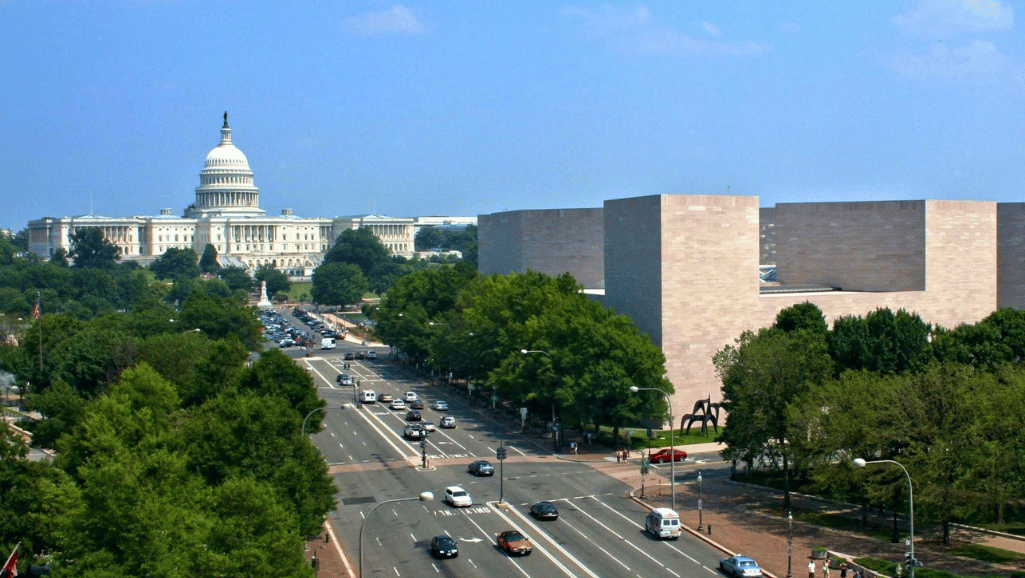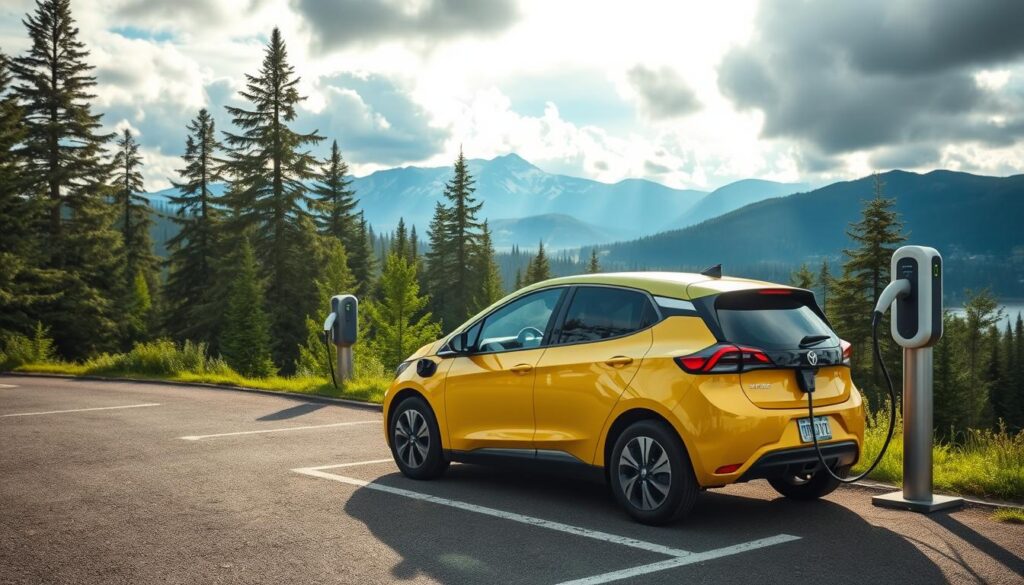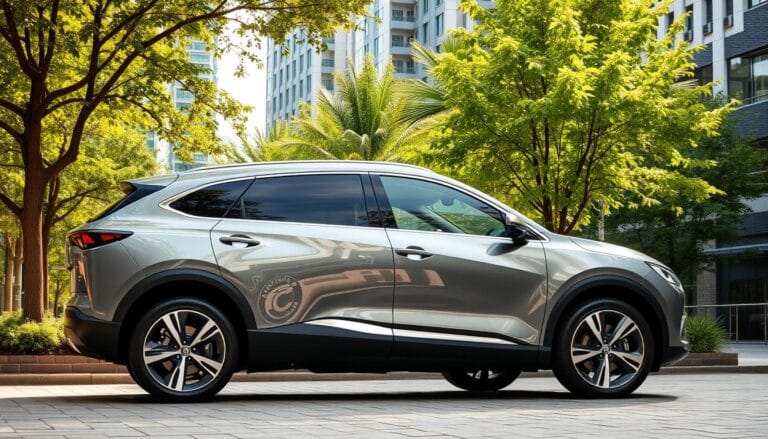Washington State is pushing for more electric vehicles (EVs) with ev tax credits, rebates, and discounts. These programs make EVs cheaper and help the state cut down on pollution. They also improve air quality.
The Washington State Department of Commerce has a new EV Instant Rebate Program. It runs from August 1, 2024, to May 31, 2025, or until it runs out of money. You can get up to $9,000 for leasing an EV for 3 years or more, and $5,000 for shorter leases. Buying a new EV gets you $5,000, and used EVs get $2,500.
To qualify, your household income must not exceed 300% of the federal poverty level. This program helps make EVs more affordable for many people.
Washington State also offers sales and use tax exemptions for clean vehicles since 2019. For new vehicles, the price or lease payments must not exceed $45,000. Used vehicles have a limit of $30,000 in fair market value or lease payments.
New vehicles can get up to $20,000 in exemptions until July 31, 2023. After that, the exemption drops to $15,000. Used electric vehicles can get up to $30,000 in exemptions based on fair market value or lease payments.
At the federal level, EV buyers can get a tax credit of up to $7,500. This depends on the vehicle’s battery size. Businesses can also get tax exemptions for alternative fuel vehicles. Plus, utilities offer rebates for EV charging stations.
Key Takeaways
- Washington State offers instant rebates of up to $9,000 for new EV leases and $2,500 for used EV purchases or leases
- Sales and use tax exemptions are available for clean alternative fuel vehicles, with limits on purchase price and lease payments
- Federal EV tax credits of up to $7,500 can be claimed based on battery size
- Businesses can take advantage of the Alternative Fuel Vehicle Retail Sales and Use Tax Exemption
- Utilities provide rebates for installing EV charging stations
Overview of Electric Car Incentives in Washington State
Washington State is leading the way in green transportation. It aims to reach net zero greenhouse gas emissions by 2050. The state offers incentives and programs to encourage electric vehicle adoption.
These incentives make electric vehicles more affordable for residents. They help reduce travel costs and lower emissions from cars.
Importance of Incentives for Electric Vehicle Adoption
Incentives are key to getting more people to use electric vehicles. Washington’s Electric Vehicle Instant Rebate Program gives discounts of $2,500 to $9,000. This is for low-income families buying electric cars.
The program is funded until June 2025. It plans to give out 6,500 to 8,000 rebates for electric car purchases.
Electric vehicle registrations are growing fast in the state. Pend Oreille County saw a 75% increase from 2022 to 2023. Stevens County had a 45.5% rise. In 2023, Spokane County had 4,312 electric vehicles registered.
Environmentally Friendly Goals
Washington State wants to cut greenhouse gas emissions to zero by 2050. It knows cars are a big source of emissions. So, it’s working hard to reduce this.
The state is also expanding charging stations for electric cars. New buildings must have EV-ready parking spots. Local rules set standards for these spots.
| Charging Station Type | Power (kW) | Voltage (V) | Charging Speed |
|---|---|---|---|
| Level 1 (AC) | 1.4 – 1.9 | 120 | Slow |
| Level 2 (AC) | 3.3 – 19.2 | 208 – 240 | Medium |
| DC Fast Charging | 50 – 350 | 200 – 600 | Fast |
There are more Level 2 chargers than DC Fast Chargers in the state. But, more funds might be available soon to add more charging stations.
By supporting electric vehicles and building more charging stations, Washington State is moving towards its green goals. It’s also cutting down on emissions from cars.
Financial Incentives for Electric Vehicle Buyers
Washington State offers financial incentives to encourage electric vehicle adoption. These incentives include sales tax exemptions and federal tax credits. They help reduce the cost of buying an electric vehicle.
Washington State Sales Tax Exemption
In 2019, Washington State started exempting sales and use tax for clean fuel vehicles. Vehicles must not cost more than $45,000 for new ones and $30,000 for used ones. Until July 31, 2023, new vehicles get up to $20,000 off, and used ones get up to $16,000 off.
Starting August 2023, the exemption for new vehicles drops to $15,000. Used electric vehicles still get up to $16,000 off until July 31, 2023, and the same amount after that.
Electric vehicle owners in Washington pay a $150 fee. This fee supports EV infrastructure development and maintenance in the state.
Federal Tax Credit for Electric Vehicles
Electric vehicle buyers in Washington also get federal tax credits. These credits can be up to $7,500 for new plug-in and fully electric cars. For used electric vehicles, buyers can get up to $4,000 in credits.
These credits lower the cost of electric vehicles. This makes them more affordable for more people.
There are also tax rebates for commercial alternative fuel vehicle purchases and EV charging station installations. These incentives help businesses and individuals invest in EV infrastructure.
By using these environmentally conscious automotive benefits, Washington residents can save money on electric vehicles. This makes eco-friendly driving more affordable and accessible.
Additional Local Incentives
Washington state offers more than just state-level incentives for electric vehicles. Local incentives, like those from utility companies and state grants, help lower the cost of owning an electric car. They also support the growth of charging stations.
Utility Company Rebates
Utility companies in Washington state have their own programs to encourage electric vehicle use. For instance, Clark Public Utilities gives up to $2,000 to low-income families for a used EV. This makes electric cars more affordable for people of all incomes.
State Grants and Funding Programs
The Washington State Department of Ecology offers grants for Level 2 EV chargers. These can be installed in public spaces, workplaces, tribal lands, and multifamily housing. Grants can cover up to $10,000 per charger, with a limit of 10 per location. This helps expand charging options and makes EVs more practical for everyone.
| Incentive | Description | Amount |
|---|---|---|
| Used Clean Vehicle Credit | Save on the purchase of a used electric vehicle | Up to $4,000 |
| Clean Vehicle Credit | Save on the purchase of a new electric, plug-in hybrid, or fuel cell electric vehicle | Up to $7,500 |
| State Sales Tax Exemption | Exemption from state sales tax for electric vehicles, boats, and marine engines | Varies |
| E-bike Rebate Program | Rebates for e-bike purchases starting in 2025 | Up to $1,200 |
Other incentives include the Washington Electric Vehicle Instant Rebate program, which helped over 6,100 people before it closed in October 2022. There are also federal tax credits for heat pumps, weatherization, and energy efficiency upgrades. These programs, along with the state’s Home Energy Assistance Program (SHEAP) and the Washington Families Clean Energy Credit, show the state’s dedication to clean energy and supporting EV tax credits.
Electric Vehicle Charging Infrastructure Support
Washington State is investing in electric vehicle charging infrastructure. It will get about $71 million over five years from the National Electric Vehicle Infrastructure (NEVI) Program. This money will help add over 5,000 charging points across the state. It’s key for meeting the demand for zero emissions vehicle rebates and electric vehicle incentives.
The first funding round is for public charging installations. It’s open to nonprofits, public agencies, tribal entities, and retail electric utilities. Charging stations will be set up in urban, rural, and tribal areas, covering the whole state.
The state focuses on installing chargers in strategic locations. It aims to help communities and fill gaps in charging infrastructure. This ensures everyone, including those in low-income areas, can benefit from EV charging.
Public Charging Station Development
Washington state has over 5,700 public charging ports and 2,100 stations. Funding programs will help grow this network. Charging stations will be installed in multifamily housing, public areas, workplaces, and fleet depots.
- Multifamily housing
- Public charging areas
- Workplaces
- Fleet depots
Each location has its own rules for charging stations. Free help is offered to make sure applications are strong.
Incentives for Home Charging Station Installation
Washington also offers incentives for home EV charger installation. Rebates of $100 to $1,000 are available for Level 2 chargers. This makes charging at home more affordable.
Requirements for Level 2 and DC Fast Chargers include:
| Requirement | Level 2 Chargers | DC Fast Chargers |
|---|---|---|
| Connector Standards | ✓ | ✓ |
| Networking Capabilities | ✓ | ✓ |
| Power Output | ✓ | ✓ |
| Payment Devices | ✓ | ✓ |
| ENERGY STAR Certification | ✓ | ✓ |
| UL Standards Compliance | ✓ | ✓ |
| OCPP Certification | ✓ | |
| NRTL Certification | ✓ |
Washington’s support for both public and private charging is helping electric vehicles grow. This effort reduces greenhouse gas emissions and supports a cleaner future.
Incentives for Businesses and Fleets
Washington State has many incentives for businesses and fleet owners to switch to electric vehicles. These clean car discounts and green transportation initiatives help cut down on greenhouse gas emissions. They also encourage using sustainable transportation methods.
Tax Credits for Electric Vehicle Purchases
Businesses in Washington can get tax credits for buying new or used electric vehicles. The credits range from $25,000 to $100,000, depending on the vehicle’s size. For leased vehicles, businesses can get up to 75% of the cost covered, with a max of $25,000.
Also, buying or leasing alternative fuel vehicles is tax-free in the state. This applies if the vehicle is under a certain value and was bought recently. Starting July 1, 2022, there’s a 50% tax exemption for Fuel Cell Electric Vehicles.
Grants for Electrifying Fleet Vehicles
Washington State offers grants to replace diesel vehicles with electric ones. These grants can cover 60% to 80% of the costs, with a max of $3,500,000. Transit authorities need to match the funding to get these grants.
The state also gives grants for Level 2 EV chargers at public and workplace locations. Each charger can get up to $10,000. Grants from $50,000 to $200,000 are available for creating ZEV carshare programs in low-income areas.
By using these incentives, businesses and fleet owners in Washington can lower the costs of switching to electric vehicles. This helps make the future cleaner and more sustainable.
Benefits of Electric Vehicle Ownership
Driving an electric vehicle (EV) in Washington State has many perks. It’s not just about having a cool, green car. You’ll save money on fuel and upkeep, and help the planet too.
Cost Savings on Fuel and Maintenance
One big plus of EVs is how much you can save. They use very little fuel, often over 100 miles per gallon. Plus, using special rates for off-peak hours can cut down on energy costs even more.
EVs also need less upkeep than gas cars. They have fewer parts and no oil changes. This means big savings each year. Here are some ways EV owners in Washington State can save:
- New three-year EV lease offers rebates up to $9,000 starting August 2024
- $5,000 rebate available for new vehicle purchases and two-year leases
- Used electric vehicles qualify for a $2,500 rebate on purchases and leases
- Sales tax exemption for new or used clean alternative fuel vehicles, valued at up to $16,000 for used vehicles and up to $15,000 for new vehicles
Reduction in Greenhouse Gas Emissions
EVs help cut down on greenhouse gas emissions. This supports Washington State’s green goals. By choosing an EV, you help fight climate change and make the air cleaner.
The good news about EVs is clear:
| Environmental Benefit | Impact |
|---|---|
| CO2 Emission Reduction Potential | Up to 24,000 metric tons in Washington’s transportation sector |
| Charging Infrastructure Investment | $100 million for nearly 5,000 new charging stations in Washington |
Using sustainable mobility grants and renewable energy vehicle subsidies helps grow EV use in Washington. It supports clean transportation for everyone.
Recent Changes to Electric Car Incentives
Washington State has made big changes to its electric vehicle programs. These updates aim to make driving green more affordable for everyone. The state wants to help reduce harmful emissions and support eco-friendly cars.
Washington Electric Vehicle Instant Rebate Program
A new program in Washington lets low-income buyers get an electric car for under $200 a month. This program used $45 million from the state to help 7,500 to 9,000 people. About 37% of the state’s residents could get help through this program.
The program offered great deals:
- $5,000 off a new EV or $2,500 off a used one at purchase
- Up to $9,000 for leasing a new EV, or $2,500 off a used one
- Maximum incentives for leases lasting three years or more
To qualify, you had to earn 300% or less of the federal poverty level. This meant making less than $45,180 or $93,600 for a family of four. The program closed on October 22, 2024, and helped over 6,100 people.
Impact on Consumers and the EV Market
The new incentives have changed the EV market in Washington. EV sales in the U.S. rose by 7.9% to 471,473 in the first five months of this year. The average price of EVs dropped to $57,584, excluding tax credits.
| Statistic | Value |
|---|---|
| Sales locations signed up for instant rebate program | Over 205 |
| Planned grants for EV chargers across the state | $85 million |
| Number of low-income people targeted by Department of Commerce program | 6,500 to 8,000 |
Lawmakers might fund the program again in 2025. This could encourage more people to choose eco-friendly cars. Starting in 2025, the state will also offer up to $1,200 rebates for e-bikes, funded by the Climate Commitment Act.
Resources for Washington State Electric Car Incentives
Washington state has many resources for those interested in electric car incentives and tax benefits. The state government offers detailed information on its websites. This makes it easy to find out about programs and who can apply. Local nonprofits and groups also help by providing support and information for those thinking about electric vehicles.
Official Government Websites
The Washington State Department of Revenue has a website about incentives for electric vehicles. It explains tax exemptions, credits, and grants for buying EVs and setting up charging stations. The Washington State Department of Ecology also has a website about the Volkswagen settlement. It shows how funds are used for EV charging and clean transportation.
Local Nonprofits and Advocacy Groups
Washington state also has local groups that help with electric car incentives. Organizations like the Energy Savings Hub help people find federal tax rebates for EVs. They offer educational materials, host events, and give personal help to make the transition to electric vehicles easier.
By using both government websites and local groups, Washington state residents can make smart choices about electric vehicles. This helps the state meet its goals of cutting emissions and promoting green transportation. As more people use the incentives, Washington state stays at the forefront of clean, efficient, and eco-friendly vehicles.
FAQ
What electric vehicle incentives are available in Washington State?
How do electric vehicle incentives support Washington’s environmentally friendly goals?
What utility company rebates are available for electric vehicle owners in Washington?
How is Washington supporting the expansion of electric vehicle charging infrastructure?
FAQ
What electric vehicle incentives are available in Washington State?
Washington State offers many incentives for electric vehicles. You can get instant rebates up to $9,000 for new EVs and $2,500 for used ones. There’s also a sales and use tax exemption of up to $16,000 for used vehicles and $15,000 for new ones.
Plus, there are federal tax credits. These include up to $7,500 for new vehicles and up to $4,000 for used ones.
How do electric vehicle incentives support Washington’s environmentally friendly goals?
Washington is leading in EV adoption, aiming to ban ICE vehicles by 2030. The state has many incentives and programs. These support sustainable transport, lower travel costs, and help meet environmental goals.
What utility company rebates are available for electric vehicle owners in Washington?
Utilities in Washington offer their own programs. For example, Clark Public Utilities gives low-income customers up to $2,000 for a used EV. The Washington State Department of Ecology also offers grants for Level 2 EV chargers at public and workplace locations.
These grants can be up to $10,000 per plug, for up to 10 plugs.
How is Washington supporting the expansion of electric vehicle charging infrastructure?
Washington will get about $71 million for EV charging over five years. This will add over 5,000 charging points. The state already has over 5,700 public charging ports and 2,100 stations.
Washington also offers rebates for at-home EV chargers. These range from $100 to $1,000 for Level 2 chargers.
What incentives are available for businesses and fleets in Washington to adopt electric vehicles?
Businesses and fleets can get tax credits for EV purchases. Clark Public Utilities offers rebates of up to $500 for Level 2 EV chargers. Commercial customers can also get an annual credit of $1,500 for each Level 3 charger.
What are the benefits of owning an electric vehicle in Washington?
EV ownership saves money on fuel and maintenance. EV owners can use time-of-use rate plans for lower costs. Driving an EV also helps reduce greenhouse gas emissions, supporting the state’s green goals.
What recent changes have been made to electric car incentives in Washington?
A new EV rebate program closed on October 22, 2024. It helped over 6,100 people buy or lease an EV. The program might be funded again in 2025.
Starting 2025, the state will offer up to $1,200 rebates for e-bike purchases. This funding comes from the Climate Commitment Act.
Where can I find more information about Washington state electric car incentives and tax benefits?
For more info, visit the Washington State Department of Revenue’s Incentives Programs website. Also, check the Washington State Department of Ecology’s Volkswagen Enforcement Action Grants website. Local nonprofits and advocacy groups, like the Energy Savings Hub, offer resources and links to federal incentives.
,200 rebates for e-bike purchases. This funding comes from the Climate Commitment Act.
Where can I find more information about Washington state electric car incentives and tax benefits?
For more info, visit the Washington State Department of Revenue’s Incentives Programs website. Also, check the Washington State Department of Ecology’s Volkswagen Enforcement Action Grants website. Local nonprofits and advocacy groups, like the Energy Savings Hub, offer resources and links to federal incentives.
What incentives are available for businesses and fleets in Washington to adopt electric vehicles?
FAQ
What electric vehicle incentives are available in Washington State?
Washington State offers many incentives for electric vehicles. You can get instant rebates up to $9,000 for new EVs and $2,500 for used ones. There’s also a sales and use tax exemption of up to $16,000 for used vehicles and $15,000 for new ones.
Plus, there are federal tax credits. These include up to $7,500 for new vehicles and up to $4,000 for used ones.
How do electric vehicle incentives support Washington’s environmentally friendly goals?
Washington is leading in EV adoption, aiming to ban ICE vehicles by 2030. The state has many incentives and programs. These support sustainable transport, lower travel costs, and help meet environmental goals.
What utility company rebates are available for electric vehicle owners in Washington?
Utilities in Washington offer their own programs. For example, Clark Public Utilities gives low-income customers up to $2,000 for a used EV. The Washington State Department of Ecology also offers grants for Level 2 EV chargers at public and workplace locations.
These grants can be up to $10,000 per plug, for up to 10 plugs.
How is Washington supporting the expansion of electric vehicle charging infrastructure?
Washington will get about $71 million for EV charging over five years. This will add over 5,000 charging points. The state already has over 5,700 public charging ports and 2,100 stations.
Washington also offers rebates for at-home EV chargers. These range from $100 to $1,000 for Level 2 chargers.
What incentives are available for businesses and fleets in Washington to adopt electric vehicles?
Businesses and fleets can get tax credits for EV purchases. Clark Public Utilities offers rebates of up to $500 for Level 2 EV chargers. Commercial customers can also get an annual credit of $1,500 for each Level 3 charger.
What are the benefits of owning an electric vehicle in Washington?
EV ownership saves money on fuel and maintenance. EV owners can use time-of-use rate plans for lower costs. Driving an EV also helps reduce greenhouse gas emissions, supporting the state’s green goals.
What recent changes have been made to electric car incentives in Washington?
A new EV rebate program closed on October 22, 2024. It helped over 6,100 people buy or lease an EV. The program might be funded again in 2025.
Starting 2025, the state will offer up to $1,200 rebates for e-bike purchases. This funding comes from the Climate Commitment Act.
Where can I find more information about Washington state electric car incentives and tax benefits?
For more info, visit the Washington State Department of Revenue’s Incentives Programs website. Also, check the Washington State Department of Ecology’s Volkswagen Enforcement Action Grants website. Local nonprofits and advocacy groups, like the Energy Savings Hub, offer resources and links to federal incentives.
,200 rebates for e-bike purchases. This funding comes from the Climate Commitment Act.
Where can I find more information about Washington state electric car incentives and tax benefits?
For more info, visit the Washington State Department of Revenue’s Incentives Programs website. Also, check the Washington State Department of Ecology’s Volkswagen Enforcement Action Grants website. Local nonprofits and advocacy groups, like the Energy Savings Hub, offer resources and links to federal incentives.
What are the benefits of owning an electric vehicle in Washington?
What recent changes have been made to electric car incentives in Washington?
FAQ
What electric vehicle incentives are available in Washington State?
Washington State offers many incentives for electric vehicles. You can get instant rebates up to $9,000 for new EVs and $2,500 for used ones. There’s also a sales and use tax exemption of up to $16,000 for used vehicles and $15,000 for new ones.
Plus, there are federal tax credits. These include up to $7,500 for new vehicles and up to $4,000 for used ones.
How do electric vehicle incentives support Washington’s environmentally friendly goals?
Washington is leading in EV adoption, aiming to ban ICE vehicles by 2030. The state has many incentives and programs. These support sustainable transport, lower travel costs, and help meet environmental goals.
What utility company rebates are available for electric vehicle owners in Washington?
Utilities in Washington offer their own programs. For example, Clark Public Utilities gives low-income customers up to $2,000 for a used EV. The Washington State Department of Ecology also offers grants for Level 2 EV chargers at public and workplace locations.
These grants can be up to $10,000 per plug, for up to 10 plugs.
How is Washington supporting the expansion of electric vehicle charging infrastructure?
Washington will get about $71 million for EV charging over five years. This will add over 5,000 charging points. The state already has over 5,700 public charging ports and 2,100 stations.
Washington also offers rebates for at-home EV chargers. These range from $100 to $1,000 for Level 2 chargers.
What incentives are available for businesses and fleets in Washington to adopt electric vehicles?
Businesses and fleets can get tax credits for EV purchases. Clark Public Utilities offers rebates of up to $500 for Level 2 EV chargers. Commercial customers can also get an annual credit of $1,500 for each Level 3 charger.
What are the benefits of owning an electric vehicle in Washington?
EV ownership saves money on fuel and maintenance. EV owners can use time-of-use rate plans for lower costs. Driving an EV also helps reduce greenhouse gas emissions, supporting the state’s green goals.
What recent changes have been made to electric car incentives in Washington?
A new EV rebate program closed on October 22, 2024. It helped over 6,100 people buy or lease an EV. The program might be funded again in 2025.
Starting 2025, the state will offer up to $1,200 rebates for e-bike purchases. This funding comes from the Climate Commitment Act.
Where can I find more information about Washington state electric car incentives and tax benefits?
For more info, visit the Washington State Department of Revenue’s Incentives Programs website. Also, check the Washington State Department of Ecology’s Volkswagen Enforcement Action Grants website. Local nonprofits and advocacy groups, like the Energy Savings Hub, offer resources and links to federal incentives.
,200 rebates for e-bike purchases. This funding comes from the Climate Commitment Act.
Where can I find more information about Washington state electric car incentives and tax benefits?
For more info, visit the Washington State Department of Revenue’s Incentives Programs website. Also, check the Washington State Department of Ecology’s Volkswagen Enforcement Action Grants website. Local nonprofits and advocacy groups, like the Energy Savings Hub, offer resources and links to federal incentives.


